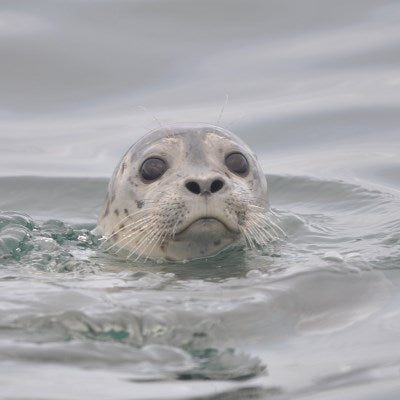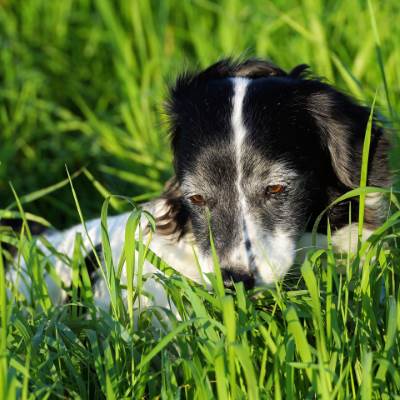
It’s easy for companies to get caught up in optimized mass production - increasing throughput to maximize profits. It sounds good for business and it’s what shareholders want to hear. However, we’re sharing this planet with beautiful animals, marine life and varied species of plants. When our actions as a business entity (large or small) start to prevent other species from thriving and sometimes even existing, that’s when we need to re-think our legacy. Will it be a barren world, slowly ravaged and depleted with more issues for generations of youth to solve?
Or can we make deliberate choices to nurture the planet back to health - and with greater awareness of how our actions impact everyone else trying to live on it. When I founded Subtle Green, it was about creating wellness and effective solutions but importantly to do so without hurting the world and being able to give back.
Here are just a few examples of how choices made in the cosmetics industry can negatively impact the environment. Some of these chemicals are commonly found ingredients in skin care and personal care products – so watch out for them:

- Choice of preservatives: Parabens are cheaply formulated preservatives that can keep products for years and years – even after the active ingredients have stopped working (what are you really left with after that?). Not only do parabens disrupt hormonal functions in people (more here) but a 2015 study by Environmental Science and Technology has discovered evidence of parabens in tissue of marine mammals such as polar bears, dolphins and sea otters. These parabens find their way into waterways through sewage and waste that we discard. Also commonly used in lipsticks and moisturizers – BHA (butylated hydroxyanisole) and BHT(butylated hydroxytoluene) – have been researched to have a high amount of bio-accumulation in marine species. An anti-bacterial ingredient – Triclocsan – used in cleansers, deodorants and laundry detergents is also washed downhill and is highly toxic to marine algae. Hurting the base of the food pyramid like this quickly disrupts the entire eco system. Although it’s absolutely necessary for cosmetic products to have preservatives to protect against mold and microbials, it’s just as important to choose preservatives responsibly so we do not inadvertently generate a waste product that is disruptive to the ecosystem.
- Synthetic fragrances: The perfume industry is a multi-billion dollar industry that thrives on making people feel good, feel attractive and confident. Chemical compositions of perfumes are proprietary and therefore not disclosed. Although fragrances can be derived from natural sources (essences of plants) they are in a large part synthesised for various reasons (cost being a primary driver). Musk is synthesized since it is (rightfully) illegal to obtain musk naturally (killing deer). Synthesized musk adds to the flow of waste downstream and accumulates in tissues of marine life. Yet more chemical compounds, Phthalates, are often added to enhance fragrances and make them linger longer. Not only do phthalates interfere negatively with our own biology, they flow downhill as marine debris and result in mutations in several forms of marine life.

- Animal tested ingredients (synthetically developed skin enhancers) : Large laboratories are synthesizing new compounds and chemicals for cosmetic use all the time. You hear about them - marketed as the next ultimate solution for flawless, youthful skin. These new compounds are tested on animals to ensure that it is safe for human use. What does that mean? Over 1 mil poor animals die annually from being cosmetic test subjects just to make sure that an enhancing product (not life-saving) is safe for us to use so we can look and feel better. Think about mascaras, makeup and even creams and lotions. A strong case can be made for safety testing of new cures to life-threatening diseases, but can the same be said for a skin-enhancing compound? There are much safer alternatives to animal testing when developing skincare. It starts with using ingredients already known to be safe, natural or naturally derived botanicals. No one makes a case for testing Avocado oil on animals. It’s up to skincare manufacturers to think before formulating and consider how ingredients they procure are extracted or tested.
So why do companies continue to use such ingredients? They’re cheap, easily accessible and generate buzz (i.e. the ultimate patented youth molecule that delivered fantastic anti-aging results in clinical tests). Is that worth the environmental consequences? We think not.
Just because a skincare product is packaged well and on the shelf of your trusted department store does not guarantee that everything is safe and good about it. It does not mean it has been manufactured with environmental safety in mind. Ingredients will reveal the truth and we encourage consumers to become aware of what goes into products. Expect transparency from skincare manufacturers – and make conscious, informed decisions when purchasing. There are many natural formulators out there and we’re all working to provide a safer alternative for you and for the environment.
Just because a skincare product is packaged well and on the shelf of your trusted department store does not guarantee that everything is safe and good about it. It does not mean it has been manufactured with environmental safety in mind. Ingredients will reveal the truth and we encourage consumers to become aware of what goes into products. Expect transparency from skincare manufacturers – and make conscious, informed decisions when purchasing. There are many natural formulators out there and we’re all working to provide a safer alternative for you and for the environment.
At Subtle Green, we’re animal lovers. We love the outdoors! So we always research the source of each ingredient to ensure that it’s (1) not tested on animals, (2) not from threatened species of plants and (3) naturally derived, extracted responsibly and biodegradable.
Luxe skincare that makes our customers feel well through environmentally accountable business practices – now that’s pretty darn satisfying!
Luxe skincare that makes our customers feel well through environmentally accountable business practices – now that’s pretty darn satisfying!





2 comments
Mar 15, 2021 • Posted by itwxodfupv
Muchas gracias. ?Como puedo iniciar sesion?
Oct 28, 2015 • Posted by Lara
Great info! completely agree – there is little transparency in the skincare industry and most companies claiming to have natural products are often Greenwashing so they look good but when you look at “all” their ingredients (if they even provide such visibility), it’s clear that they have no idea what eco-friendly even means.
Leave a comment